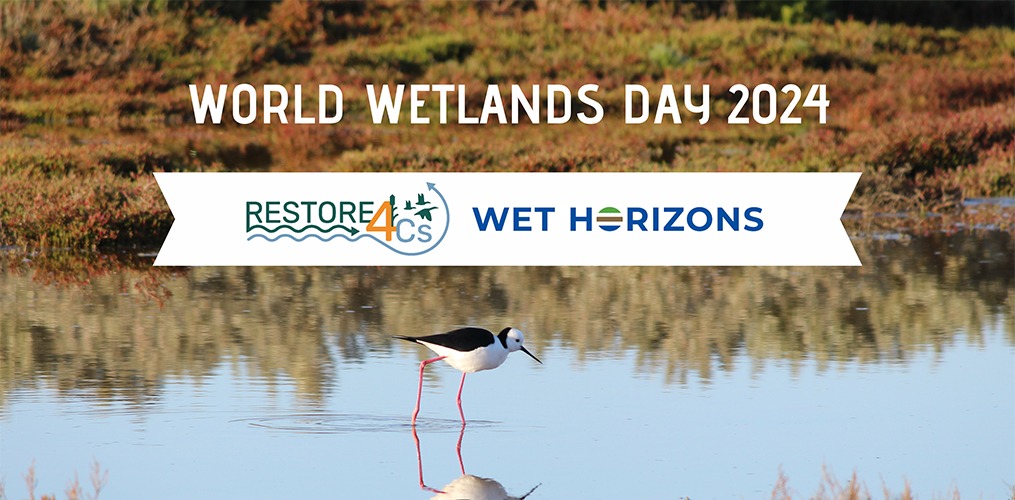
Today, 2 February 2024, is the 27th World Wetlands Day. As The World Health Organization said, our well-being depends on the stability of our climate, biodiversity, and sustainable development. Wetlands play a significant role in connecting all three factors.
For instance, just an acre of wetlands can hold up to 1.5 million gallons of floodwater, protecting coastal areas against natural disasters. Peatlands have the potential to store twice as much carbon as the global forest biomass. Wetlands also provide food for up to 4.5 billion people annually through the fish and rice paddies harvested from them.
On this day, we would like to draw attention to an article created as part of the RESTORE4Cs project, in which LifeWatch ERIC participate. The project aims to model wetland restoration for carbon pathways, climate change mitigation and adaptation, ecosystem services, and biodiversity co-benefits.
“For centuries people have found solace in remote wetlands, but there is now evidence that spending time in places like these actually helps boost mental health. This is particularly essential for the dark winter months in northern latitude”,
Mark Reed, Professor of Rural Entrepreneurship at Scotland’s Rural College
Despite this history, we are now losing these ecosystems alarmingly. The 2018 Global Wetland Outlook from the Ramsar Convention revealed that one third of the wetlands have been lost globally since 1970, mainly to urbanization and agriculture. A key theme of World Wetlands Day 2024 is the need to act now, and Europe’s researchers believe we already have solutions to turn things around.
“I think global treaties and recent EU laws mean we’re in the right decade to restore these ecosystems”
Dania Abdul Malak, Director of European Topic Centre for Spatial Analysis and Synthesis at the University of Malaga
Nowadays there are policies that can really help reestablish their function, and make sure they can also provide ecosystem services. Restoring wetland ecosystems will become critical for a more sustainable climate, biodiversity and human wellbeing by 2030.
Matuesz Grygoruk, Professor at Warsaw University of Life Sciences’ (SGGW) Department of Hydrology, Meteorology and Water Management
Mateusz suggested prioritising wetland restoration as a central focus in determining environmental management actions. He argued that these efforts are crucial in restoring the functions of wetlands, which are irreplaceable through any other management measures.
Restoring wetlands can have significant benefits, such as improving their biodiversity, water storage capacity, and ability to sequester carbon in soil. WET HORIZONS, a sister project of RESTORE4Cs, aims to enhance wetlands restoration and support European wetland policy.
To learn more about RESTORE4Cs and their commitment to World Wetlands Day, visit this project page.